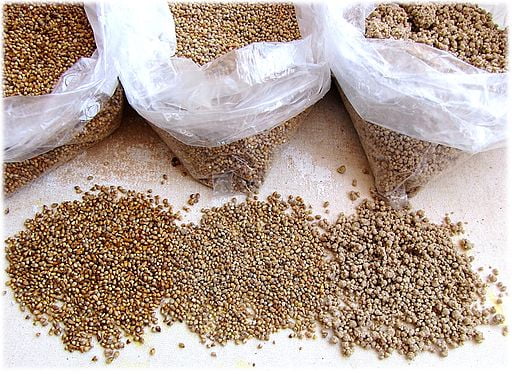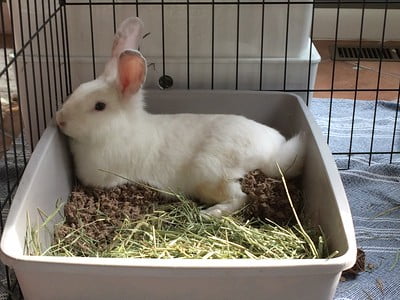Last Updated on March 11, 2023 by Marjon Ramos
Cold ears in pet rabbits are not usually a cause for concern because it is their body’s natural response to regulate their body temperature.
Rabbits restrict the blood flow in their ears if it’s too cold. They do this to preserve as much heat in their bodies as possible.
But if your rabbit has cold ears in addition to other symptoms like changes in their behavior, poop, and appetite, it’s time to take them to a rabbit-savvy veterinarian.
Now that I’ve given you the gist of the article, read on as I explain in more detail why your rabbit’s ears are cold:
Table of Contents
Why are your rabbit’s ears cold?
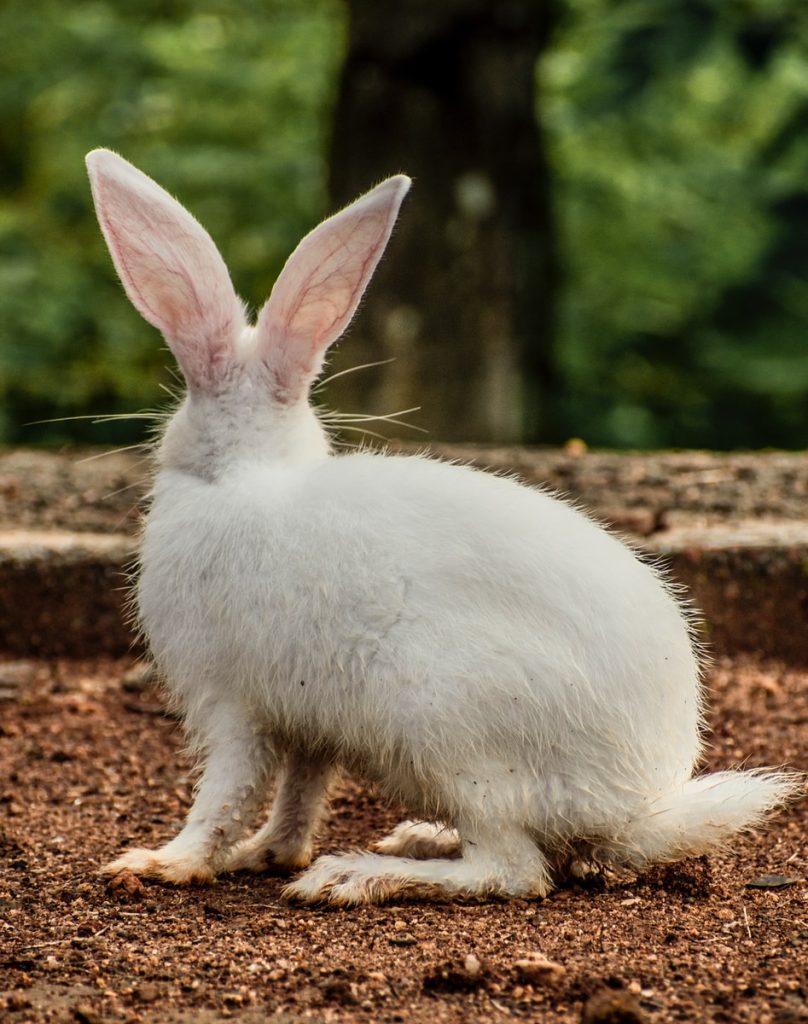
Rabbits use their ears to regulate their body temperature since they cannot pant or use other methods of regulating body temperature like other animals.
They use different mechanisms to regulate their body temperature depending on the climate.
As an example, during colder climates, rabbits restrict the blood flow in the blood vessels of their ears to preserve as much heat in their body as possible.
They also regulate their breathing by lowering their breathing pace, which helps them preserve as much body heat as possible.
Another thing they do when the climate is cold is sleep or rest in a curled up position like this:
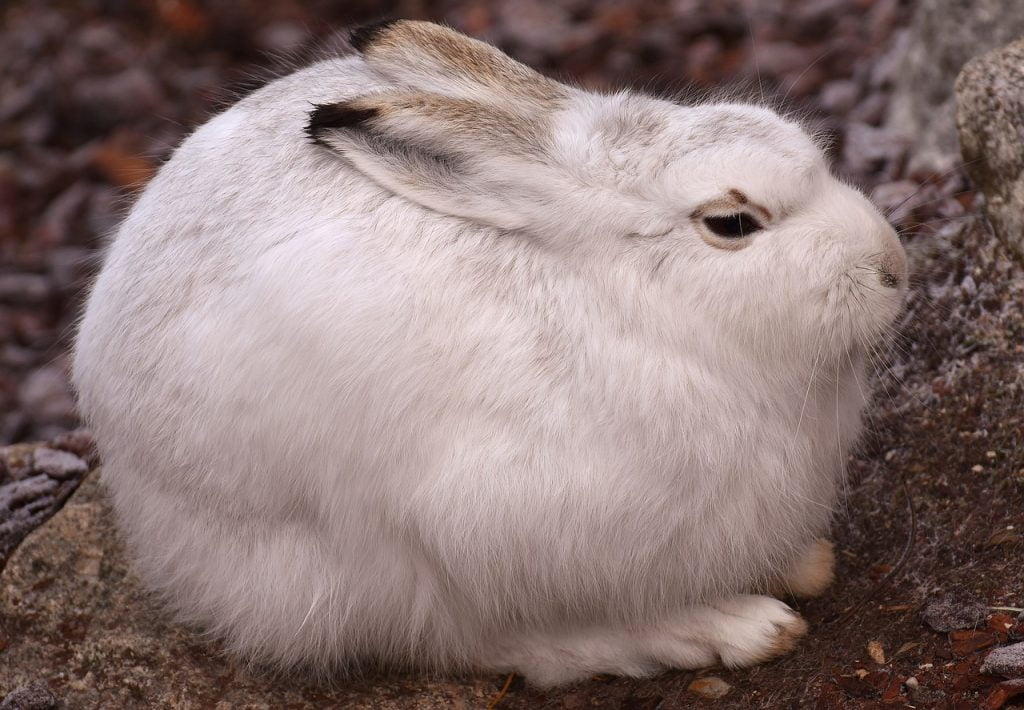
This position prevents heat from escaping from their body and reduces the area of exposed skin that can lose heat due to thermic exchanges between skin and the cold air.
So if your rabbit has cold ears, it could mean that the temperature of their environment is lower compared to their core temperature.
Combined with their thick fur, wild rabbits can survive in near-zero temperatures given that their fur is not wet. The same is true for domestic rabbits.
Rabbits are actually more tolerant of cold than heat. Due to their thick fur and the inability to pant, rabbits are susceptible to heat stroke.
Is it normal for rabbits to have cold ears?
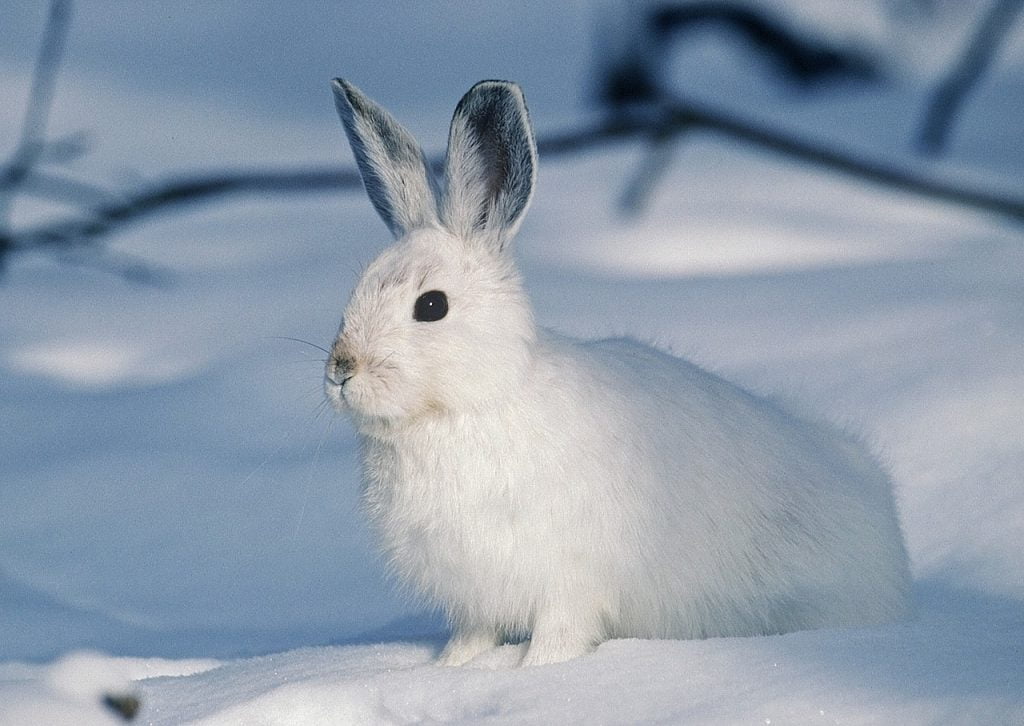
Rabbits that have cold ears are not a concern in and of itself because it’s a natural reaction when the climate is cold. As I said earlier, rabbits use their ears to regulate their body temperature.
So if your rabbit has cold ears, it just means that they are restricting their blood flow in their ears to preserve as much body heat as possible because they are cold.
But, it could also be an indication that your rabbit is sick. Rabbits that are experiencing health problems can experience a sudden drop in body temperature.
You can usually tell if your rabbit is sick by looking for additional symptoms like changes in their poop, behavior, and appetite.
You can also look for signs of pain by looking at their body language. Rabbits that are in pain would likely have hunched posture and be more aggressive than usual.
Should you be concerned if your rabbit’s ears are cold?
If your rabbit just has cold ears, it’s not usually a concern. But, if your rabbit has cold ears in addition to other symptoms like changes in their appetite, behavior, or poop, it’s time to take them to a rabbit-savvy veterinarian.
As an example, if your rabbit has cold ears in addition to loss of appetite, it could be a sign of a digestive problem like GI stasis. GI stasis is a life-threatening condition when not treated immediately.
When should you bring your rabbit to a veterinarian?
You should bring your rabbit to a veterinarian if you notice any changes in their poop, behavior, or appetite.
Rabbits that are exhibiting additional symptoms could indicate that something is seriously wrong with your rabbit.
As an example, changes in behavior, like suddenly being aggressive when interacting with them, could mean that your rabbit is in pain.
Rabbits that are in pain would usually keep it to themselves and wouldn’t allow anyone to interact with them.
Here’s a great video that explains when you should bring your rabbit to a veterinarian:
What to do if your rabbit has cold ears?
The first thing to do is to find out if your rabbit really can’t tolerate the cold weather. According to a study done by Michigan State University, a rabbit’s normal body temperature should be 102 to 103 °F.
While the ideal temperature for rabbits is between 55-70 °F (13-21 °C). Depending on the breed, rabbits can tolerate a temperature of about 85 °F (29 °C). Breeds that have thicker wool or fur should be housed at lower temperatures.
Here are the signs that your rabbit might be cold:
- Ears feels cold
- Breathing through their mouths.
- Shivering.
- Pale lips
- Lethargy.
If you notice any of these symptoms, immediately warm up your rabbit:
How to warm up a cold rabbit?
If your rabbit has cold ears, you simply have to warm them a little. You can place a bottle filled with warm water wrapped around a towel beside it. Ensure that you do not accidentally burn the rabbit.
You can also try warming your rabbit’s ears by holding them until it’s warm enough.
When it is cold in your country, you can buy a heating pad. Your rabbit can then lie on it if they feel cold.
Conclusion
If your rabbit has cold ears, it could mean that the climate of their environment is lower compared to their core temperature, which means they are not keeping as much body heat as possible.
Cold ears in rabbits are not a cause for concern because it is their body’s natural response to regulate their temperature.
But, if your rabbit has cold ears in addition to other symptoms like changes in their appetite, behavior, or poop, it’s time to take them to a veterinarian.
Cite this article:

